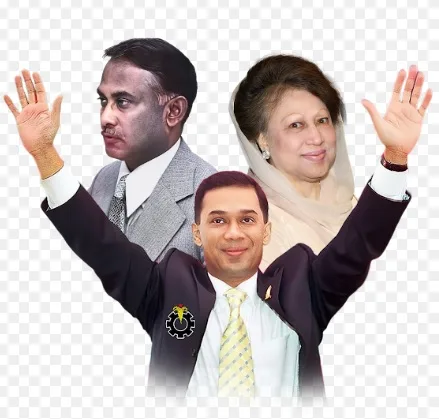
Zakir Hossain / Dhaka
A nationwide survey conducted by Innovision Consulting reveals that the Bangladesh Nationalist Party (BNP), led by former premier Khaleda Zia, holds the lead in voter preference, while the once-dominant Awami League (AL) has seen a significant decline in popularity. The survey, titled “People’s Election Pulse: Feb-March 2025”, included 10,696 respondents from across Bangladesh.
Among the 65% of voters who disclosed their preference for the next general election, BNP secured 42% support, followed by Jamaat-e-Islami at 32%. Meanwhile, AL trails far behind with just 14%. The survey also highlights the emergence of a student-led political party, which, despite being new, has managed to capture 5% of the voter base.
AL faces an uphill battle: Once Bangladesh’s most powerful political force, AL’s credibility has eroded over years of allegations of election rigging, political repression, and corruption. The party suffered a major blow in 2024, when a nationwide student-led uprising, triggered by the killing of students, led to mass protests and the eventual ousting of Sheikh Hasina’s government. Interestingly, AL still maintains a slight edge over the student-led party among Gen Z voters, securing 11% support compared to the student movement’s 10%. However, this narrow lead suggests that young voters are increasingly disillusioned with traditional parties and seeking alternatives.
BNP and Jamaat’s stronghold among voters: The survey indicates that BNP continues to enjoy strong support among older voters, with 47% of Gen X and Boomers favoring the party. In a surprising trend, Jamaat-e-Islami has gained traction among both the oldest and youngest demographics, securing 35% support among the Post-War generation and 34% among Gen Z. This suggests that while Jamaat has a traditionalist image, its influence is growing among younger voters as well.
Both BNP and Jamaat exhibit higher rural support, demonstrating their effective grassroots mobilization strategies. BNP holds 42% support in rural areas compared to 40% in urban regions, while Jamaat stands at 32% in rural areas versus 30% in urban areas.
BNP’s support is fairly even across genders—42% among men and 41% among women—indicating broad-based acceptance. Jamaat-e-Islami’s appeal is slightly stronger among male voters (33%) compared to female voters (30%).
